
Many dogs, especially those over 10 years old—approximately 1 in 5 as per the American College of Veterinary Internal Medicine—can develop a condition called congestive heart failure (CHF). This means their hearts struggle to pump blood effectively throughout their bodies. While there’s no permanent solution, there are ways to make your canine companion more comfortable and improve their overall well-being. Here, we explore 15 strategies to show your love and support as your dog navigates CHF.
Provide A Calm and Quiet Environment

CHF can be overwhelming for dogs. Create a peaceful haven by minimizing loud noises and avoiding situations that might trigger anxiety. Provide a designated quiet space away from busy areas like stairways or near entrances where your dog can relax and rest comfortably without disturbances.
Harness the Power of Gentle Touch
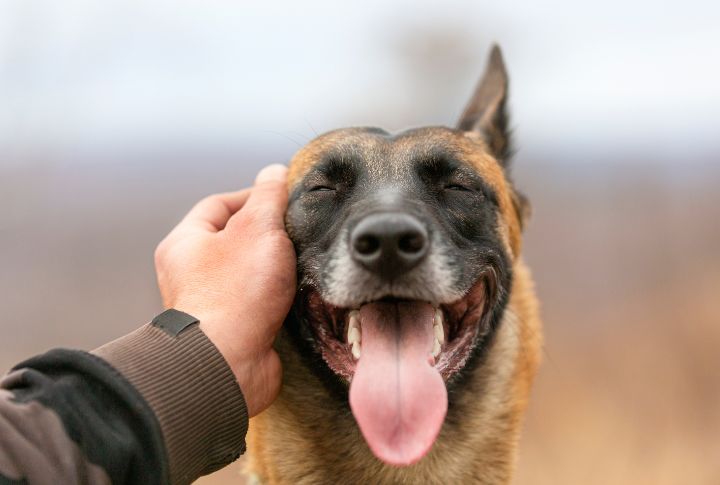
The power of touch is undeniable. Regularly petting your dog lowers their stress hormones and promotes feelings of safety and security. Run your fingers gently through their fur, offer a calming head massage, or simply cuddle close and let them feel your presence.
Establish Familiar Routines
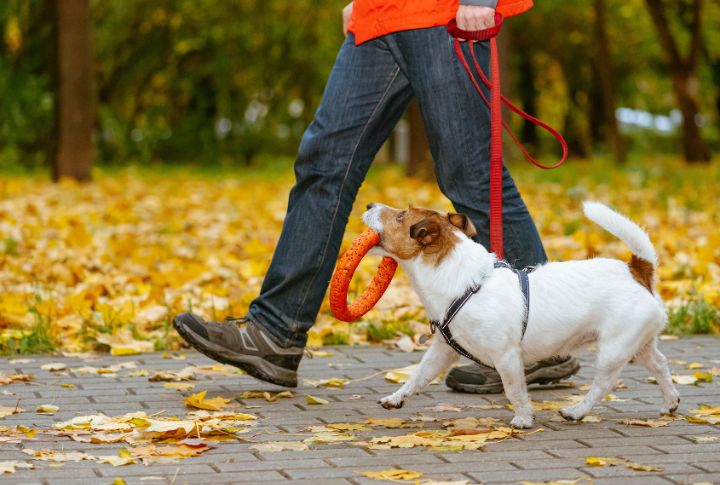
Maintaining a predictable schedule for walks, meals, playtime, and cuddle sessions provides a sense of stability and comfort. Changes in routine can be unsettling for dogs with CHF. Consistency can help your dog feel safe and secure despite its condition.
Opt for Supportive Bedding

Invest in comfortable, supportive bedding that elevates your dog’s head and chest. This positioning improves their breathing by allowing for easier airflow and reduces pressure on the heart. Consider using a memory foam bed or adding extra pillows for optimal comfort.
Encourage Short, Leash-Walks

Exercise remains important, but the intensity should be adjusted. Swap strenuous walks for shorter, controlled strolls on flat terrain. Watch for signs of fatigue and shorten walks if needed. Always keep your dog on a leash to prevent overexertion or unexpected excitement.
Employ Soothing Music Therapy

Studies suggest calming music can ease anxiety in dogs. Play classical melodies or nature sounds during rest times to create a serene atmosphere. Observe your dog’s response and choose music that promotes relaxation and reduces stress levels.
Switch To Light Meals, More Often
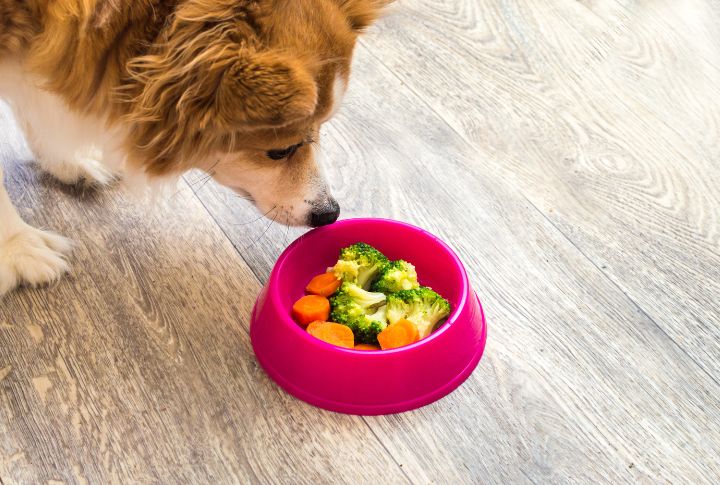
Large meals can be taxing for your dog. Instead, opt for smaller, more frequent portions throughout the day. This reduces strain on the digestive system and allows for easier absorption of nutrients. You can check with your veterinarian for precise portion control and feeding schedule recommendations.
Give Steady Access to Fresh, Clean Water

Adequate hydration is vital for all dogs, but particularly important for those suffering from congestive heart failure. Make sure that your pet has constant access to clean water throughout the day. You can use a water fountain or add ice cubes to their bowl to encourage them to drink more.
Focus on Weight Management
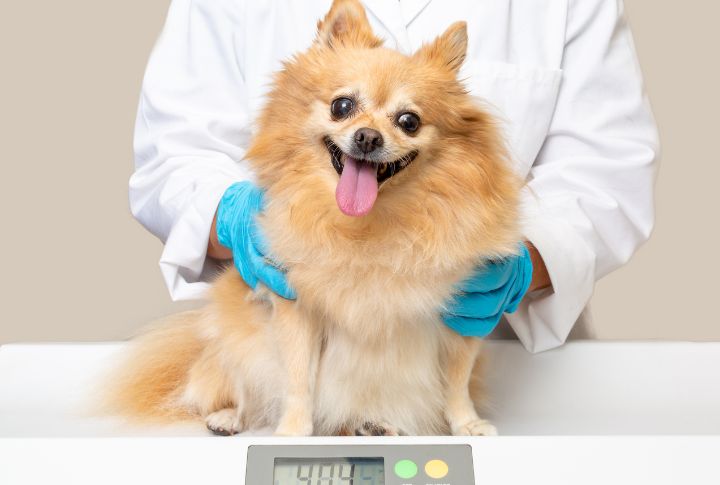
If your dog is overweight, work with them to create a safe weight management plan. Extra weight makes it harder for your dog’s heart to work. Gradual weight loss can significantly improve their heart function and make them feel more comfortable overall.
Ensure Stress-Free Travel

The stress of car rides and vet visits can worsen their condition. Planning ahead and creating a calm environment can turn these trips into smoother sailing. Talk to your vet about alternatives like home checkups or travel anxiety medication. For unavoidable car rides, keep them short and bring along familiar comforts like their favorite blanket or toy.
Keep Food and Water Bowls Elevated
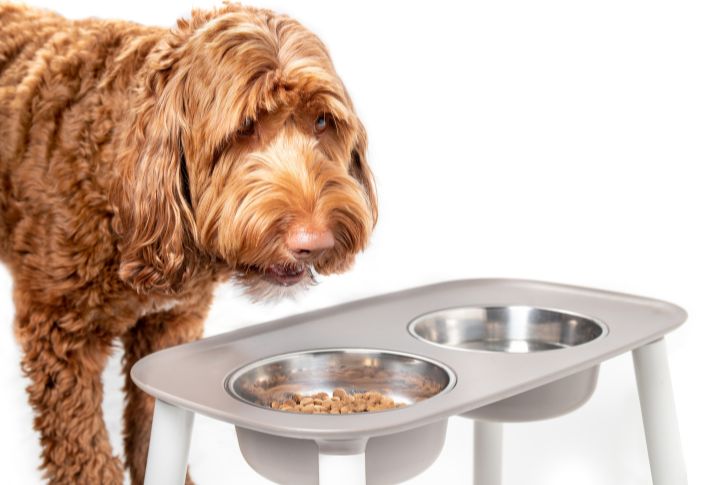
Elevated bowls improve posture and make eating and drinking easier for them. The raised position reduces strain on their neck and chest, allowing them to comfortably consume food and water without putting extra pressure on their heart. Invest in elevated bowls designed specifically for senior or large breed dogs.
Focus on Medication Management

For pups with CHF, medication is their superhero suit! It helps manage symptoms and keeps them feeling their best. Don’t skip doses or adjust them without consulting your vet. Set reminders on your phone or use a pill organizer to ensure they get their meds on time.
Consider Regular Vet Checkups

Regular vet visits are like pit stops for your pup. These checkups help your vet monitor their condition, catch any changes early, and adjust treatment to keep them feeling their best. Be a detective too! Watch for behavior or breathing changes, and don’t hesitate to call your vet if anything worries you.
Monitor for Changes

Be observant of your dog’s behavior and physical signs for early detection of worsening CHF. Changes in appetite, lethargy, coughing, or difficulty breathing might warrant a visit to the veterinarian. Monitor their breathing rate and note any excessive panting, especially at rest. Keep a log of any changes you observe to share with your veterinarian during their next checkup.
Shower Them with Love

Most importantly, shower your dog with love and affection. A strong human-animal bond provides emotional comfort and helps them cope with their condition. Spend quality time together, engage in gentle play sessions if they’re up for it, and offer plenty of verbal reassurance and cuddles. Remember, your love and presence are powerful tools in helping your furry companion navigate CHF.

Comments
Loading…